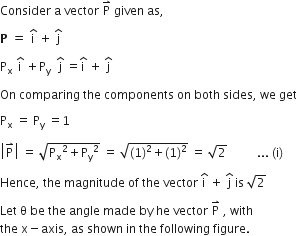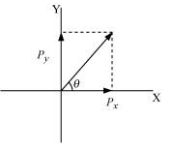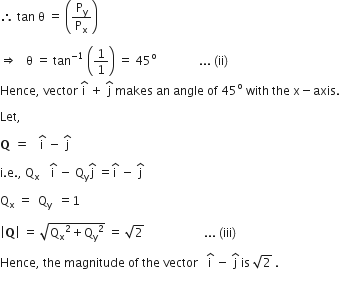
For any arbitrary motion in space, which of the following relations are true :
A.
(a) vaverage = (1/2) (v (t1) + v (t2))
î and ĵ are unit vectors along x and y-axis respectively.
What is the magnitude and direction of the vectors î + ĵ, and î − ĵ ?
What are the components of a vector A= 2î + 3ĵ along the directions of î + ĵ and î − ĵ?
[You may use graphical method]


For any arbitrary motion in space, which of the following relations are true :
A.
v (t) = v (0) + a tTips: -
The motion of the particle is arbitrary. The acceleration of the particle may also be non-uniform. Hence, this equation cannot represent the motion of the particle in space.For any arbitrary motion in space, which of the following relations are true :
A.
vaverage = [ r(t2) - r(t1) ] / (t2 – t1)For any arbitrary motion in space, which of the following relations are true :
A.
r (t) = r (0) + v (0) t + (1/2) a t2Tips: -
The motion of the particle is arbitrary; acceleration of the particle may also be non-uniform. Hence, this equation cannot represent the motion of particle in space.